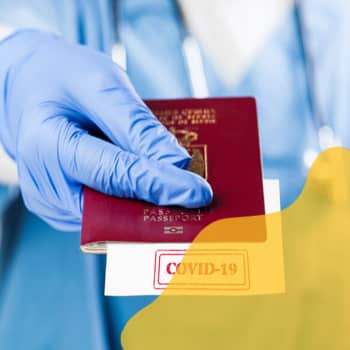Forgot password? Reset here
Travel Vaccine
If you're
planning to travel outside the UK, you may need to be vaccinated against some
of the serious diseases found in other parts of the world.
Vaccinations
are available to protect you against infections such as yellow fever, typhoid
and hepatitis A.
In the UK,
the NHS routine immunisation (vaccination) schedule protects you against a
number of diseases, but does not cover all of the infectious diseases found
overseas.
When
should I start thinking about the vaccines I need?
If possible,
see the GP or a private travel clinic at least 8 weeks before you're due to
travel.
Some
vaccines need to be given well in advance to allow your body to develop
immunity.
And some
vaccines involve a number of doses spread over several weeks or months.
You may be
more at risk of some diseases, for example, if you're:
· Travelling in
rural areas
· backpacking
· staying in hostels
or camping
· on a long trip
rather than a package holiday
If you have
a pre-existing health problem, this may make you more at risk of infection or
complications from a travel-related illness.
Which
travel vaccines do I need?
You can find
out which vaccinations are necessary or recommended for the areas you'll be
visiting on these websites:
· Travel Health
Pro
· NHS Fit for
Travel
Some
countries require proof of vaccination (for example, for polio or yellow fever
vaccination), which must be documented on an International Certificate of
Vaccination or Prophylaxis (ICVP) before you enter or when you leave a country.
Saudi Arabia
requires proof of vaccination against certain types of meningitis for visitors
arriving for the Hajj and Umrah pilgrimages.
Even if an
ICVP is not required, it's still a good idea to take a record of the vaccinations
you have had with you.
Where do
I get my travel vaccines?
First, phone
or visit the GP practice or practice nurse to find out whether your existing UK
vaccinations are up-to-date.
If you have
any records of your vaccinations, let the GP know what you have had previously.
You should
also ask if the GP practice is signed up to provide free NHS vaccinations for
travel, as not all GP practices are.
If the GP
practice does not provide NHS vaccinations for travel, you can try a:
· Private travel
vaccination clinic
· Pharmacy
offering travel healthcare services
The GP or
practice nurse may be able to give you general advice about travel vaccinations
and travel health, such as protecting yourself from malaria.
They can
give you any missing doses of your UK vaccines if you need them.
Not all
travel vaccinations are available free on the NHS, even if they're recommended
for travel to a certain area.
If the GP
practice is signed up to provide NHS travel vaccines, these can be provided to
you free of charge.
Other
non-NHS travel vaccines may be charged for by the GP.
If the GP
practice can give you the travel vaccines you need but they are not available
on the NHS, ask for:
· Written
information on what vaccines are needed
· The cost of each
dose or course
· Any other
charges you may have to pay, such as for some certificates of vaccination
Which
travel vaccines are free?
The
following travel vaccines are available free on the NHS if your GP practice is
signed up to provide vaccination (immunisation) services.
· Polio (given as
a combined diphtheria/tetanus/polio jab)
· Typhoid
· Hepatitis A
· Cholera
These
vaccines are free because they protect against diseases thought to represent
the greatest risk to public health if they were brought into the country.
Which
travel vaccines will I have to pay for?
You'll have
to pay for travel vaccinations against:
· Hepatitis B
· Japanese encephalitis
· Meningitis
vaccines
· Rabies
· Tick-borne
encephalitis
· Tuberculosis
(TB)
· Yellow fever
Yellow fever vaccines are only available from designated centers.
The cost of
travel vaccines that are not available on the NHS will vary, depending on the
vaccine and number of doses you need.
It's worth
considering this when budgeting for your trip.
Other
things to consider
There are
other things to consider when planning your travel vaccinations, including:
· Your age and
health – you may be more vulnerable to infection than others; some vaccines
cannot be given to people with certain medical conditions
· Working as an
aid worker – you may come into contact with more diseases in a refugee camp or
helping after a natural disaster
· Working in a
medical setting – a doctor, nurse or another healthcare worker may require
additional vaccinations
· Contact with
animals – you may be more at risk of getting diseases spread by animals, such
as rabies
If you're
only travelling to countries in northern and central Europe, North America or
Australia, you're unlikely to need any vaccinations.
But it's
important to check that you're up-to-date with routine vaccinations available
on the NHS.
Pregnancy
and breastfeeding
Speak to a
GP before having any vaccinations if:
· You're pregnant
· You think you
might be pregnant
· You're
breastfeeding
In many
cases, it's unlikely a vaccine given while you're pregnant or breastfeeding
will cause problems for the baby.
But the GP
will be able to give you further advice about this.
People
with immune deficiencies
For some
people travelling overseas, vaccination against certain diseases may not be
advised.
This may be
the case if:
· You have a
condition that affects your body's immune system, such as HIV or AIDS
· You're receiving
treatment that affects your immune system, such as chemotherapy
· You have
recently had a bone marrow or organ transplant
A GP can
give you further advice about this.
Non-travel
vaccines
As well as
getting any travel vaccinations you need, it's also a good opportunity to make
sure your other UK vaccinations are up-to-date and have booster vaccines if
necessary.
If you have
any records of your vaccinations, let the GP know what you have had previously.
People in
certain risk groups may be offered extra vaccines.
These
include vaccinations against diseases such as:
· Hepatitis B
· Tuberculosis
(TB)
· Flu
· Chickenpox
When to get
further advice
Speak to your GP before having any vaccinations if:
· You're pregnant
· You're
breastfeeding
· You have an
immune deficiency
· You have any
allergies

